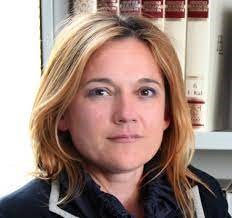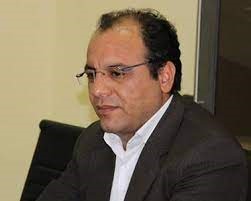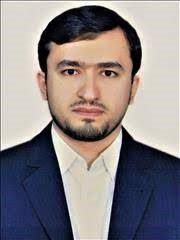Key Staff 2021
A team of experts from Iran and European Union member countries collaborate to implement this module. The major of team members are Law and Economics and they approach to the subject matter from different and Complementary perspectives. Thus, they are well equipped to cover legal, economic and administrative aspects of PIT in the EU.
SKILLS AND EXPERTISE OF KEY STAFF MEMBERS
1. Ali Nassiri Aghdam

Ali’s major is economics of the public sector with special focus on the economics of taxation. He teaches economics of taxation regularly and holds regular workshops to disseminate legal and economic foundations of tax policy and tax reform. He has publications in peer reviewed journals regarding personal income tax and its administrative and legal requirements. He also contributed in translation of a book entitled “tax policy and tax reform in Latin America”.
He has been involved in two recent major tax reforms in Iran when he was in charge of assessment of proposed bills, once as a member of Iran’s Parliament Research Center and the other time, as a secretary of the Cabinet’s economic commission. And very recently, he won a fund to do a research and to draft a bill to reform Iran’s personal income tax system. In this research he and his team (who some of them are collaborating in this Module) studied the structure of Personal Income Tax in the country members of European Union to shed light on this new reform. So he is well aware of the patterns of PIT in EU countries, and as a coordinator of this Module, he aims to share his findings with students and tax practitioners.
2. Marco Greggi

Marco is Lawyer and Professor of International Taxation Law at the University of Ferrara, Italy; Advisor to the Tax Courts of Appeal in Bologna and Venice, Italy (Ufficio del Massimario). Scientific Manager of an EU Funded Erasmus+ Project (Ferrara).
He is also Former Scientific Manager of two EU Funded Erasmus Mundus Projects (EACEA) and Consultant to the Region Emilia Romagna on the tax treatment of Italian Expats.
Author of three scientific books (in Italian) and various academic Articles in Italian and English. Visiting (past) Professor at the Universities of Vaduz, Lugano, Zagreb, Rijeka, Heidelberg, Budapest (ELTE), Hull, Birmingham, London (Roehampton), Seoul, Tehran, Almaty (KIMEP), Haifa, Melbourne (J. Monash), Sao Paulo (IEF), Belo Horizonte, Sherbrooke. He has recently been Professor of Taxation at the Chinese University of Political Sciences and Law, at the Eurasian national University and visiting research fellow at the Swinburne University of Technology.
3. Georges Cavalier

Georges Cavalier is Associate Professor of Law at the University of Lyon, France, Director of the Tax LL.M, and Deputy Director of the Research Centre on Financial and Tax Law.
Author of two scientific books (one in English), and various academic Articles published in French, English, Chinese. Co-author (in French language) of Taxation and Development (Cujas Paris, 2006), and of a Tax Law Dictionary (Ellipses Paris, 2007). French reporter to the IFA (Basel, 2015), and to the EATLP (2019). Participated in a round table meeting organized by the Centre for Scientific Research and Middle East Strategic Studies in Teheran (with published article) and in various Erasmus + missions.
Visiting (past) professor in various Universities among University of Georgia at Athens; Cornell University; Brooklyn Law School, New York; University of North Carolina at Chapel Hill; Queen Mary University of London; University of Surrey; University of Essex; Radboud University of Nimegue; Pallas Consortium, Amsterdam; University of Geneva, and the University of Tehran, Iran.
4. Jesús Ramos Prieto

Jesús is Lawyer and Professor of Taxation at Pablo de Olavide University of Seville (Spain). He has been member of several official commissions for the reform of Spanish Tax Law and Project Manager of important research projects. At the moment he is a member of the Scientific Committee of the Scuola Europea di Alti Studi Tributari of Bologna (Italy).
He is the author, co-author or coordinator of 19 books, 71 book chapters and 29 scientific articles. He has been lecturer in more than 50 national and international congresses.
5. Natasa Zunic Kovacevic

Natasa is full professor of Law at the Faculty of Law, University of Rijeka. She has had several work experiences and teaching activities with respect to financial and tax law, including but not limited to Head of Chair of Financial Law (Financial Law, Tax Law); Vice Dean for Graduate University Study Affairs at the Rijeka Law Faculty; Head of Department of Financial law; and Co-convener at the Accredited Postgraduate Specialistic Study Program at the Faculty of law, University of Rijeka “Corporate Finance Law”.
She has given several lectures and taught many courses with regard financial and tax law, such as Tax Law, European Tax law, Tax Procedural Law, Corporate Taxation, Financial Law and Financial science, and International Financial law.
Natasa has been active is Scientific / Professional Associations. Among them one can refer to EATLP - Academic Committee member; Croatian Academy of Legal Sciences; International Academy of Comparative law (IACL); Croatian Association for Comparative law (HUPP); Editorial committee Croatian Law Review; National Association for Development of Higher Education “Universitas“; Appointments by Croatian Parliament - from 2013 member of special committee of Croatian Parliament – Commission on Fiscal Policy; Appointments by Croatian Government in Foreign Affairs - from 2005 member of the working group in the process of negotiation for the accession of the Croatia to EU: “Company law” appointed by the Government of the Republic of Croatia.“Legal Aspects of Corporate Acquisitions and Knowledge Driven Corporate Restructuring”, (2015-2019); Protection of the Beneficiary on the Croatian/European Financial Services Market, No. 13.08.1.2.0 (University of Rijeka Research Grants); Project - Protection of Beneficiary on the Croatian/European Financial Services Market, ID: 115-1151212-2498.; International scientific - research project, IBFD, “Flexible multi-tier dispute resolution in international tax dispute”, 2015, are among research projects, she has been involved as a team member.
6. Bagher Darvishi

Bagher is Assistant Professor of public Economics at the University of Ilam. He has 8 years of research and teaching experience in the area of public economics. He deals with taxation issues, especially tax reforms and tax systems, as well as poverty and inequality, Cost-benefit analysis, and institutional economics.
He has published four scientific articles and he is the author / co-author of four national project on taxation (An Investigation on Capital Gain Tax, The Structural Reforms in Iran’s Tax System, The Comparative Study of Iranian Tax System with the Tax Reforms of 1990’s, and Designing PIT tax system for Iran).
7. Mohammad Javad Rezaei

Mohammad Javad is Assistant Professor of the Faculty of Humanities at Shahed University, Iran. He received his PhD in Economics from Imam Sadiq University.
His research interests include economics of the public sector and the Iranian tax system. He has so far published articles and reports on reviewing the Iranian tax system and the need to reform the principles and mechanisms of taxation in Iran.
Focusing on Iran's direct tax law and participating in the drafting of a tax reform bill into a personal income tax system are experiences related to this project.
8. Mahdai Movahedi Becknazar

Mahdi is Assistant Professor of the Faculty of Humanities at Shahed University, Iran. He received his PhD in Economics from Imam Sadiq University.
He is currently a member of the “Law and Economics” Department at the Judiciary Research Institute of I. R. of Iran.
He is interested in tax law and its economic rational as well as pre-requirement of implementing personal income tax systemin Iran. In so doing, he has done an extensive comparative study to understanding alternative mechanism of implementing PIT and their pros and cons.


